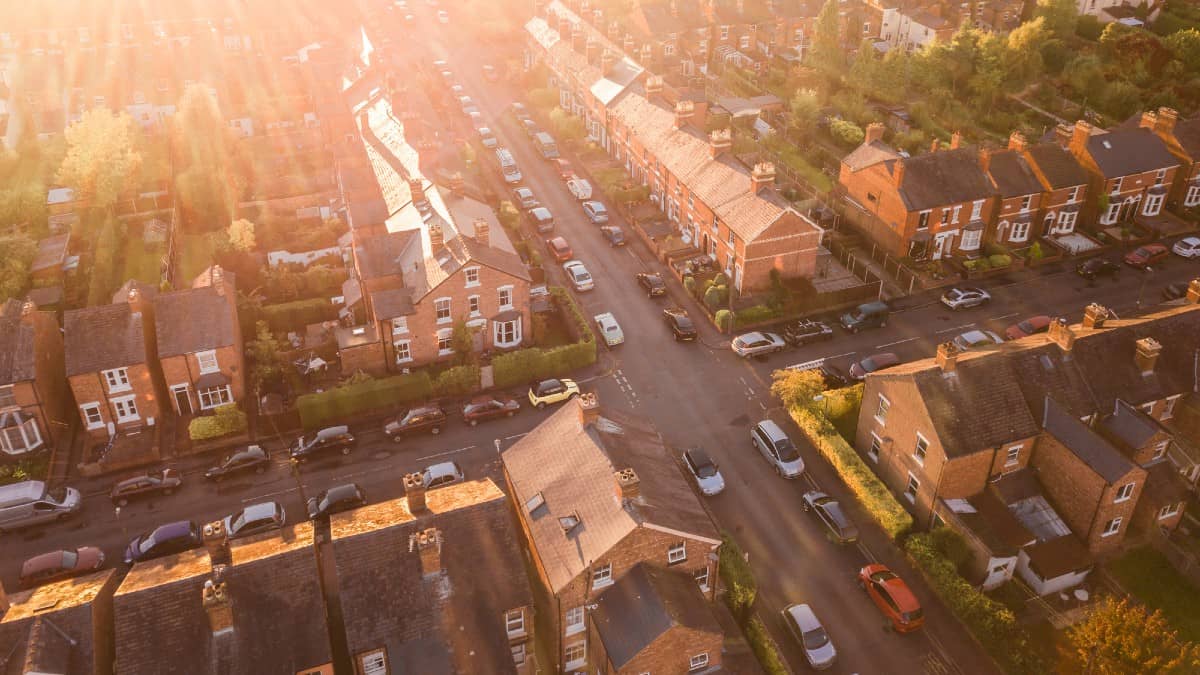Despite the effects of the coronavirus pandemic on the economy, house prices in the UK soared in 2020, experiencing their sharpest annual rise in almost six years. This defiance of the economic downturn by the UK housing market has led some to wonder whether we might be in a house price bubble and whether that bubble could burst soon.
But what exactly is a house price bubble? Let’s find out.
What is a house price bubble?
A house price bubble, as defined by the Bank of England, is when house prices increase a lot just because people think prices will continue to rise.
In other words, the public develops excessive expectations about future house price increases, causing prices to rise above average levels.
This unsustainable rise in house prices is almost always followed by a crash where the bubble bursts and prices fall sharply.
What causes it?
A house price bubble can be caused by a wide range of factors. These factors might sometimes even work in tandem. They include:
- Low interest rates and loose lending standards
- Tax exemptions such as a stamp duty holiday
- General economy growth that results in people having more disposable income to spend on property
- Slow rates of house construction because of external factors
- A lack of space for new constructions that drives up the price of existing houses
House price bubble history in the UK
One of the most notorious house price bubbles in the UK occurred in the 1980s. Between 1984 and 1989, house prices in the UK doubled, which was much higher than the growth of people’s earnings.
Not surprisingly, the bubble was followed by almost five years of falling house prices.
In fact, it was not until 1999 that house prices actually recovered and returned to their pre-1989 levels.
The traps of a house price bubble
During a house price bubble, some buyers stretch their finances further than they would usually deem acceptable. They buy property they may previously have considered to be beyond their price range because they believe they will be compensated by significant further price increases.
Some may even completely abandon their saving habits since they assume that the increased value of their home will do the saving for them.
A house price bubble can also affect first-time buyers. Many worry that if they don’t buy immediately, they’ll not be able to afford a home if prices continue to rise.
Unfortunately, the lesson is not learnt until after the bubble bursts.
When does a housing price bubble burst?
The fact of the matter is that prices in a house price bubble cannot go up forever. A time comes when prices no longer reflect the fundamental values of the housing market. That’s when the rapid climb stops.
When people perceive that house prices have stopped going up, the expectations and speculation that supported the price appreciation start breaking down. Demand starts falling and is quickly outpaced by supply.
The ultimate result is that the bubble bursts and prices crash.
What happens when the bubble bursts?
When the bubble bursts, it does not just affect the property market. It affects the nation’s economy as a whole.
For example, a bubble can lead to people borrowing more than their houses are actually worth. When the bubble bursts, they find themselves in negative equity.
They have to stretch to afford their mortgage repayments. This might include dipping into their savings.
It is not uncommon for a lot of people to lose their homes, savings and overall financial stability once a house price bubble bursts.
How can you protect yourself?
Unfortunately, it’s not always easy to identify a house price bubble until it bursts.
To avoid becoming a victim, it’s best to make sure you only buy a house you can comfortably afford.
Remember that a home is a big investment and that there’s no guarantee it will rise in value. It’s much safer to hold off and stick to your budget rather than borrowing an excessive amount. Otherwise, you’ll only to find yourself struggling to meet your financial obligations should the bubble burst.







